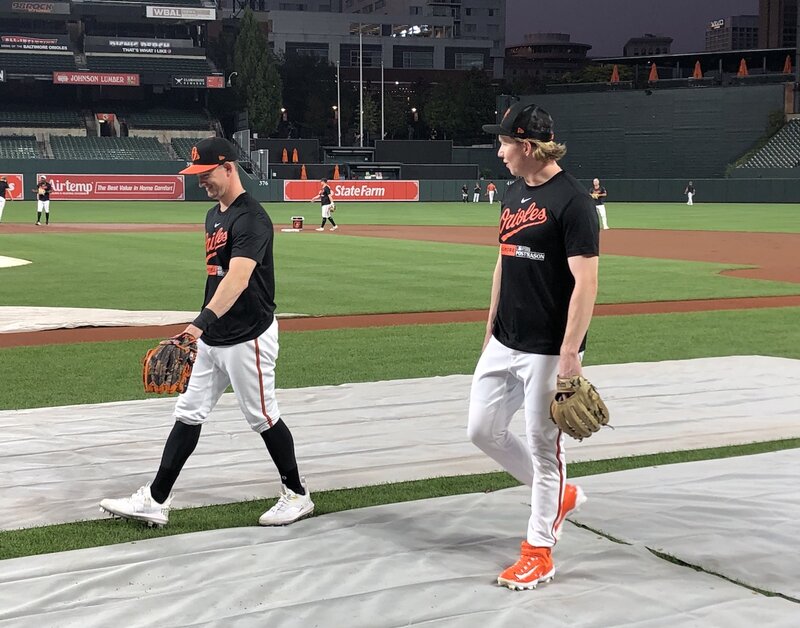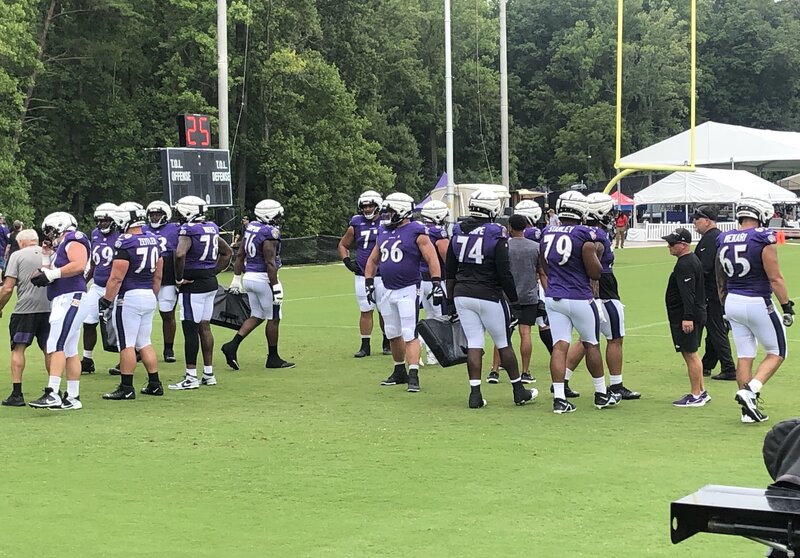what was happening behind the scenes of a circus he could afford to buy and conduct but had no clue how to run properly and successfully.
With an overmatched and out-of-touch Syd Thrift by his side, Angelos proceeded to chase off another “lifer” Orioles player with his negotiating tactics, which might’ve worked in his legal and business affairs but didn’t translate to attracting and retaining the best Major League Baseball players in the world.
The Orioles finished the 2000 season, 74-88, stuck in fourth place for the third consecutive year. After the season’s merciful end, Angelos appeared on the Orioles flagship radio station WBAL Radio on Oct. 6 to discuss all team matters, getting interviewed on the radio by what was essentially an employee more than a media member. It was a “State of The Team” address, if not a state of emergency warning for the team’s fans.
Strangely enough, it wasn’t Mussina’s pending free agency that led the line of questioning. Instead it was the black cloud of speculation about the future of Albert Belle, who struggled mightily through the 2000 season with a lingering hip injury.
“The problem that he has with the hip, while susceptible to rehab and treatment, is not an absolute certainty to come around to the level that he can function to which he once did or, for that matter, that he might be able to continue,” Angelos told his business partner at WBAL. “There is no indication that he won’t be able to continue, but nonetheless it is an injury of serious proportions.”
The Baltimore Sun reported:
Angelos spoke forcefully of competing next season, holding the line in negotiations with pending free-agent pitcher Mike Mussina and also dismissed media criticism of his organization as “folderol.”
Angelos added the Orioles would consider dealing Belle should he rehabilitate and then agree to waive his no-trade leverage. (Belle enjoys full no-trade protection through next season.) Angelos also promised to discipline Belle if the right fielder continued misconduct that last season included bumping several media members and stadium employees. Angelos insisted he was unaware of the incidents, which warranted a brief investigation by the club but resulted in no disciplining of Belle.
With the Orioles apparently committed to a younger, more home-grown roster next season, Angelos classified the club’s reputation as resistant to young talent as the product of “imaginative journalists” and an unproductive farm system.
The WBAL interview was very telling because it was an unvarnished, angry Angelos bellowing pronouncements and words like “folderol” that fed right into his already-diminished reputation as a petty bully and a rock head in regard to doing the business of baseball and talent. It would be among his final semi-legitimate visits with the media over the next two decades where he stood to answer somewhat pointed questions for an audience that was still large enough to demand real answers and accountability.
“We intend to be competitive every year,” Angelos said. “We haven’t been in the last three years because our minor-league system simply was not capable of producing players because it was still in the process of emerging as a legitimate minor-league system. But this year, with the advent of [outfielder Luis] Matos and other players, the minor-league system is beginning to produce players capable of competing at the major-league level. We have no intention of remaining at some second-level status.”
As much as the starting pitching was in question, it was the Orioles gas-can bullpen that faltered throughout the 2000 campaign. “I guarantee we’re going to rebuild our bullpen,” Angelos said.
And what about his ace pitcher, and the negotiations to retain Mike Mussina?
“We’re not in the business of making arrangements with baseball players that border on economic insanity,” said Angelos. “We are in the business of putting a first-rate team on the field which is composed of athletes who are generously compensated. But when the demands of any one player or more than one player exceed what we believe to be reasonable, we are prepared to go in another direction. If we’re not able to do that, then we become the prisoners of the respective ballplayers. We aren’t going to do that. We don’t operate that way. We play fair. We pay





























